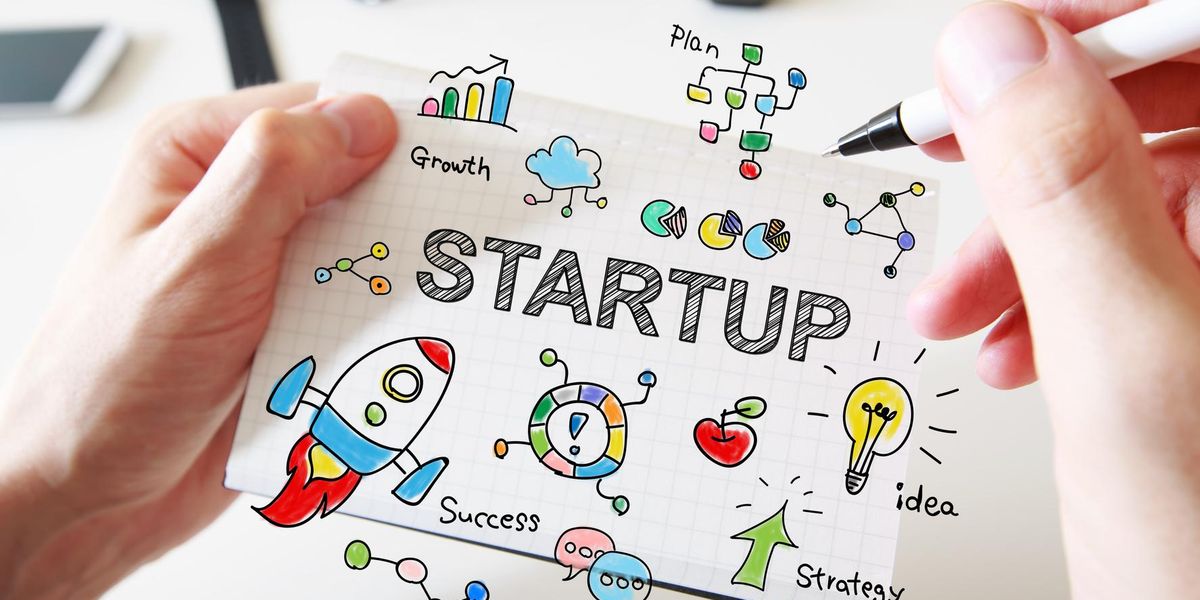Starting a business could be both thrilling as well as challenging. One of the key aspects of launching a startup is coming up with a viable business idea. While generating an idea may seem like the hard part, the real challenge is often in validating it. Many entrepreneurs dive headfirst into their ideas without first validating them, which can lead to financial losses and wasted time.

What is a Startup Idea?
A startup idea is a concept or a vision for a new business venture that an entrepreneur plans to develop and bring to the market. It typically involves identifying a gap in the market or a problem that needs solving and coming up with a unique and innovative solution. A startup idea is not limited to a particular industry or sector and can range from software applications to consumer goods, healthcare products, or even services.
The market demand, the target market, the level of competition, the entrepreneur’s abilities, and experience are just a few of the variables that greatly influence the success of a startup idea. Innovation, viability, scalability, and the ability to bring in money and draw investors are all necessary components of a successful company idea. Additionally, it must stand out from the competition with a distinct value offer that responds to a particular client demand.
A startup idea can come from various sources, such as personal experience, research, industry trends, or partnerships. It’s crucial to have a clear understanding of the market and the target audience to ensure that the idea is feasible and has the potential to succeed.
Conducting market research, analyzing the competition, and seeking feedback from potential customers are some of the ways to validate a startup idea and refine it further.
Why is Validating Your Startup Idea Important?
Validating your startup idea is essential because it helps you assess its potential before investing time, money, and resources into building it. A startup idea may seem promising and innovative, but it may not be feasible or sustainable in the long run. By validating your idea, you can identify potential problems, challenges, and gaps in the market, and adjust your strategy accordingly.
One of the advantages of validating your startup idea is that it helps you understand the market and your target audience. By conducting market research and gathering feedback from potential customers, you can identify their needs, preferences, and pain points. This information is critical in developing a product or service that meets their needs and provides value.
Validating your startup idea can also reduce financial risks and increase the chances of success. Building a startup from scratch requires significant investment, both in terms of time and money. By validating your idea, you can ensure that you are investing in a viable and scalable business model that has the potential to generate revenue and attract investors.
Achieving product-market fit is a crucial aspect of the success of any startup idea. Product-market fit refers to the alignment between the product or service being offered and the needs and preferences of the target audience.
To validate a startup idea and work towards achieving product-market fit, it is important to conduct market research, analyze the competition, and gather feedback from potential customers. These steps help entrepreneurs refine their startup ideas and ensure their feasibility and potential for success.
How to Validate Your Startup Idea
Validating your startup idea involves a series of steps that can help you assess the feasibility and potential of your business concept. The following are some of the ways to validate your startup idea:
- Identify your target market. Determine who your ideal customers are, what their needs and preferences are, and how your product or service can address their pain points. This information is critical in developing a value proposition that resonates with your target audience.
- Conduct market research and gather customer feedback. This involves gathering data and insights about the industry, the competition, and the target audience through methods such as surveys, interviews, and focus groups. By analyzing this information, you can refine your business model, adjust your strategy, and improve your product or service based on the specific needs and preferences of your target customers.
- Build a prototype. This involves creating a minimum viable product (MVP) that allows you to test your idea and gather feedback from early adopters. A prototype can be a simple website, an app, or a physical product that demonstrates the core features of your business concept.
- Test your idea. This involves launching your product or service to a small group of customers and gathering feedback on its usability, functionality, and overall user experience. This feedback can help you refine your product or service and identify potential problems or gaps in the market.
- Iterate and pivot. Based on the feedback you receive, you may need to adjust your business model, product features, or target audience. This process of iteration and pivoting is critical in refining your startup idea and increasing its chances of success.
Challenges of Validating a Startup Idea
Validating a startup idea can be a complex and challenging process that requires a significant investment of time, resources, and expertise. During the validation phase, entrepreneurs encounter various challenges that need to be carefully navigated. The difficulties in proving your startup idea are listed below.
Gathering accurate data and conducting validation. Validating a startup idea involves conducting comprehensive market research and gathering feedback from potential customers. However, this process can be time-consuming, costly, and the data collected may not always be reliable or representative of the target audience, which can lead to inaccurate insights and hinder the validation process.
Identifying the right metrics for validation. Measuring the success of a startup idea requires identifying appropriate metrics that align with the business goals. These metrics can vary depending on factors such as the industry, product or service type, and target audience. Determining the most relevant metrics to track can be a challenge and requires careful consideration to ensure the effectiveness of the validation process.
Managing competition and differentiation. Analyzing the competition and identifying market gaps are crucial aspects of validating a startup idea. However, competition can be intense, particularly in crowded markets. Standing out and differentiating your product or service from others can be a significant challenge that requires a deep understanding of the market landscape and a unique value proposition.
Addressing bias in feedback. When gathering feedback from customers during the validation process, it is important to consider potential biases that may impact the results. Some customers may have personal agendas or biased opinions, which can skew the feedback and affect the validity of the insights obtained. Careful evaluation of the feedback is necessary to ensure informed decision-making.
Navigating iteration and pivoting. Validating a startup idea often involves iterating and refining the concept based on the feedback received. However, making substantial changes to the business model, target audience, or strategy can be challenging. It may require convincing investors or stakeholders to support these changes. Effective communication, data-driven justifications, and a flexible mindset are the key to successfully navigating the iterative and pivoting process.
Entrepreneurs should approach the validation of their startup ideas with a more informed and strategic perspective and increase their chances of creating a successful and long-lasting firm by understanding and solving these issues.

